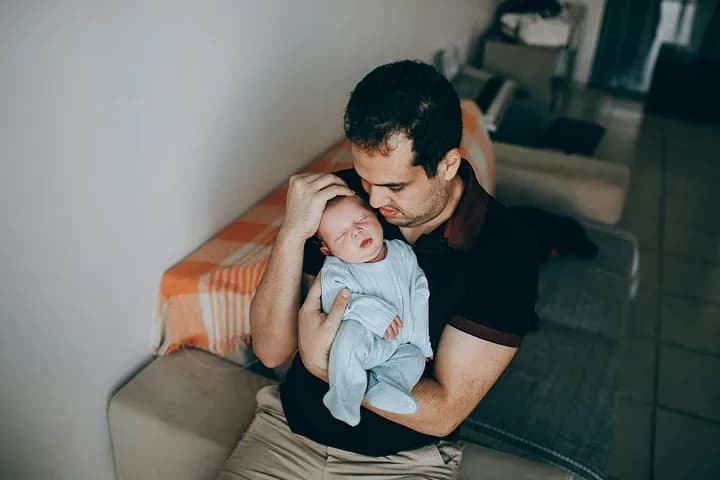What Dads Need to Know About 'Mommy Brain', Pt 1
July 1, 2025

It is common for couples to struggle to navigate the profound changes that occur before and after we welcome a new baby. Partners frequently express confusion about the new mother's emotional landscape:
She's just not herself anymore, or I don't understand why she can't just enjoy this time.
What many partners don't realize is that becoming a mother isn't just a new role — it's a fundamental neurobiological transformation comparable to puberty in its scope and impact.
The Maternal Brain: A Marvel of Adaptation
Recent research highlighted in an important article by Caroppo, Schiavone, and Mauri (2024) reveals that the maternal brain undergoes remarkable structural and functional changes during pregnancy and after birth. These aren't temporary glitches — they're purposeful adaptations designed to enhance a mother's ability to keep her vulnerable infant alive and thriving.
Here's what partners should understand about these changes:
1. This Isn't "Hormonal Irrationality" — It's Purposeful Rewiring
When your partner seems hyper-vigilant about the whether the baby has kicked enough in her belly today or obsessively checks your newborn's breathing, she's not being irrational. Her brain's threat detection systems have been enhanced to ensure her baby's survival. Brain regions involved in vigilance and protection show increased activity during early motherhood — an adaptation that served our species well throughout evolutionary history.
Rather than dismissing these concerns as "hormonal" or "excessive," recognize them as her brain doing exactly what it evolved to do: protect her vulnerable offspring at all costs.
2. Her Identity Is Literally Being Reorganized
Brain regions involved in self-concept and identity processing undergo significant changes during matrescence. When your partner says, "I don't know who I am anymore," she's describing a neurobiologically real experience of identity reconstruction.
This isn't melodrama — it's an accurate description of the profound neural reorganization that's occurring as she integrates her maternal identity with her pre-existing sense of self. This process takes time and requires significant psychological energy.
3. Her Brain's Reward System Has Been Recalibrated
Perhaps you've noticed your partner seems less interested in activities she once enjoyed, while finding endless fascination in watching the baby sleep. This reflects actual changes in her brain's reward circuitry, with infant-related stimuli becoming highly salient and rewarding.
When she seems less excited about date night than before, it's not that she loves you less — her brain is temporarily prioritizing baby-related rewards as a biological adaptation to ensure attentive caregiving.
4. Her Cognitive Changes Are Real and Temporary
"Mommy brain" isn't a myth — it's a reflection of actual changes in brain regions governing executive function, attention, and memory. These changes help mothers focus intensely on their babies' needs, sometimes at the expense of other cognitive tasks.
When she forgets appointments or seems less sharp with work tasks, she's experiencing real neurocognitive effects that typically resolve over time. This isn't incompetence or disinterest — it's adaptive neural specialization.
5. Her Emotional Reactivity Has a Neurobiological Basis
If your partner seems more emotionally reactive than before, this may reflect enhanced activity in brain regions involved in emotional processing — particularly the amygdala, which shows increased volume and activity during early motherhood.
This heightened emotional sensitivity isn't a weakness — it's a feature, not a bug. It helps mothers respond quickly and appropriately to their babies' subtle cues and needs.
A Time of Transformation for Both of You
While this article focuses on maternal brain changes, it's important to acknowledge that partners also experience significant neurobiological and psychological changes with parenthood. The transition is different but no less profound.

